Interview
In this Interview, Andrew Martinez explains why having an online presence for your business is more important than ever
Published
4 years agoon


Andrew Martinez is a known WordPress expert. In this interview, he talks about his entrepreneurial journey, why having an online presence during this pandemic is a must and about his upcoming bootcamp.
Andrew, Thank you for talking with us. Entrepreneurship is not new to you. However, before your current venture, you had the taste of entrepreneurship on various occasions. A few mildly successful ones and a few failures. Tell us something more about your journey.
Thank you for having me. It was around 2007 when I was introduced to the world of entrepreneurship. I was attending church with my girlfriend at the time, and another member of the congregation gave me this newsletter from a nutritional network marketing company and asked me to consider the opportunity. It talked about the benefits of having a home-based business and also had some suggested reading.
One of the books from that suggested reading list was Robert Kiyosaki’s Rich Dad Poor Dad . I found the title very intriguing and ordered a copy for myself from Amazon. After I finished reading it, I felt it was the most eye-opening book I ever read.
I remember thinking to myself “wow it would be nice if they taught this kind of stuff in school!” In a nutshell, society programs us that the path to success is to go to school, get good grades, graduate with honors, find a good-paying job with benefits, and then look forward to retirement after ~40 years of working. Unfortunately, it does not always work like this.
Ever since I read Rich Dad Poor Dad and eventually his other book Cashflow Quadrant, I just knew that I did not want to work for someone else forever. Instead of working for my money, I wanted to eventually have my money and other resources working for me. I did eventually decide to give that nutritional network marketing company a try.
However, in less than a year I ended up quitting as it was a challenge to recruit others. I ultimately lost money from that business opportunity.
Over the next few years, I also attempted a few other ventures such as real estate bird dogging (locating properties for other investors for a referral fee), affiliate marketing (making money selling other people’s products), freelancing, and creating my own products.
With real estate bird-dogging, while I was able to maintain a buyer’s list (of investors ready to pay cash on the right deal), it would be an ongoing challenge finding deals for those investor buyers.
Then in 2012, I came across an online ad about an affiliate marketing online course. The basic premise of the course was to create a self hosted WordPress blog where you picked a niche, produced relevant content for that niche, strategically inserted affiliate links here and there, and also encourage people to sign up for your email list.
I invested in this affiliate marketing course. This is where I also first learned about the benefits of a WordPress website in addition to email marketing. When I was going through this course and building my WordPress website, I became fascinated with the whole website creation process.
Ever since then, I have taught myself more about web design, web development, and online marketing via platforms like Codecademy and Udemy. That affiliate marketing course from 2012 really kicked off my career in online entrepreneurship.
In 2014 I took on my very first client project – creating a website for a local makeup artist. It was such a huge thrill to have another person pay me money to put my techie skills to work. This also taught me an important lesson: it’s ok if you’re not a total expert at something. As long as you’re a step ahead of your audience (further along than them), and they are gaining genuine value from you, then this is all that matters.
I then eventually came up with my own website Powerful Digital Solutions where the focus would be helping service-based solopreneurs, startups, and other non-techie entrepreneurs establish their online presence.
For a while, I was doing this as a side hustle while working another full-time job. In October 2017 I made the plunge into full-time entrepreneurship and became a full-time WordPress Website Consultant. For a while, I had a steady flow of client projects including referrals. Eventually, I had a dry spell and realized I needed to make some adjustments. I also came across some resources about “productizing” your service and how freelancers can turn what they do into a digital product.
I remember one day I joined this Facebook group for people considering creating their own online course. When I made my introductory post and mentioned how I’ve considered making a course that would teach others how to build their own WordPress website, I got quite a bit of feedback.
Although I had not yet begun any official market research, a number of people commented and asked if I planned on releasing soon. Another person talked about the frustrations she had with making her own WordPress website. From that point on, I knew that I had to create a course.
Another milestone in my entrepreneurial journey was when I read Choose by Ryan Levesque. This book is all about teaching you how to pick your niche (one that is willing to spend money).
I remember this one part in the book that talked about the best types of business for your personality style. For instance, if you’re an introvert by nature then selling infoproducts and/or memberships would best suit you.
If you’re naturally extroverted, then selling coaching and/or live events might best suit you. Although network marketing was not categorized in this context, one could argue that it’s better suited for extroverts.
As an introverted entrepreneur, this insight was huge. This made me realize how it’s important to play to your natural strengths. This inspired me, even more, to work on my online course as well as consider other possible digital products in the future (such as a membership or Kindle book).
As of 2020, in addition to working on client projects, I am also coming up with do it yourself (DIY) resources for those who don’t want to hire someone. I know what my strengths and weaknesses are, and I make sure to play to my natural strengths while outsourcing my weaknesses. I take very much pride in creating beautiful and professional WordPress websites, offering DIY resources, and also offering
relevant affiliate products.
What were the initial challenges that you faced in your endeavor?
When I joined that nutritional network marketing company back in 2007, I was told to make a list of my family, friends, and everyone else I knew and to share the products as well as the business opportunity. It was definitely a challenge finding interested prospects this way.
This made me wonder if I was even cut out for entrepreneurship. Fast forward to October 2017: when I went full time with my side hustle of building websites, it did have its challenges. I had to teach myself how to better manage my time and prioritize my tasks. I also had occasional challenges with finding qualified prospects (especially those who would respect my expertise and not haggle me on price).
After investing in some resources (including a little coaching and mentorship), I learned how to better manage my time, qualify prospective clients, and manage client expectations. Over time I was able to really hone my internal systems and processes for success.
“If a business is not on the internet, the business does not exist at all.” Though a cliche, many businesses miss this point. What are your views on this?
Bill Gates once said “if your business is not on the Internet, then your business will be out of business.” I strongly believe that success leaves clues. When a billionaire shares some form of business advice with you, you might want to listen.
I firmly believe that if a business is serious about their overall long term success, then they need a professional website in place that is fast, secure, and search engine optimized.
A website should be treated like a member of their team: like a sales & marketing rep that works 24/7 to share their brand, serve customers (current & prospective), and ultimately contribute to the bottom line.
Some people might think that a Facebook business page (or other social media page) is all they need. However, since their algorithms can change over time, this can hurt a business’s organic reach. Plus it is nearly impossible to have your own look and feel on a social media page.
Many businesses are reluctant to have an online presence. Some think they are technically not sound to create their business’ digital presence. How justified is their fear? Also, do you think that irrespective of the nature of your business, a solid online presence is a must?
I can see why some businesses might be afraid. Creating a website does involve spending quite a bit of time in front of a computer, and some business owners may not have the time, focus, or concentration to be able to be in front of their computer for an extended amount of time.
Many also simply don’t know about the benefits of a WordPress website and how it makes the website creation process easier. People fear what they do not fully understand. If more entrepreneurs gained at least a basic understanding of WordPress, then they would see that the whole process doesn’t have to be overwhelming.
No matter what type of business you have, a solid online presence is a must for long term success.
People will often visit a business online before visiting in person.
If a business wants to get found on Google by prospective customers, maintain their credibility, and also have that 24/7 sales & marketing rep that never sleeps, then a professional website is needed.
Covid-19 has hit brick and mortar businesses hard. Those who are not adapting to the whole situation are filing for bankruptcy. How do you see the whole situation so far? What strategies can businesses adopt in order to tackle this unprecedented business challenge?
As of May 2020, I am seeing conditions slowly improve. I’ve noticed that more and more businesses are reopening while maintaining social distancing and other precautions.
I feel that this situation is an excellent example of the need to have an online presence in order to better adapt and survive. This whole situation has also been a reminder to me to never rely on just one source of income (nor on just one product/service offering).
Just as individuals should diversify their income, businesses should have an overall diversified strategy (e.g., some restaurants have been selling groceries in addition to prepared meals).
The number one suggestion I could offer to businesses during this time is to figure out how they can innovate and diversify their offerings. If someone runs a service-based business (such as an accountant or barber), maybe they could offer mobile services or somehow productize their service. I know that the online learning industry is a billion-dollar industry and recession-proof.
As part of a diversified business strategy, a small business owner could maybe come up with DIY resources for the public. At the same time, small business owners could use this downtime to audit their business strategy (figure out what has and has not been working before this pandemic) and then make improvements such as giving their website a revamp. In addition to merely surviving this pandemic, businesses should also ready themselves for after this pandemic is done with.
One final point I’d like to make is that many successful businesses were formed during a recession such as Uber and Groupon. This should serve as inspiration to focus more on innovating and less on how bad present conditions are.
You believe that taking your business online should not be a mystery and small businesses should not be looted in the name of making websites for their businesses. Tell us more about your upcoming Bootcamp which demystifies the entire website building process.
My 3 Day Website Planning Bootcamp which begins May 18, 2020 is all about helping service based solopreneurs, startups, and other non techie entrepreneurs make a plan for their online presence.
Whether you just need a basic “online brochure” or something more complex like an online shop, it all starts with a written plan. On Day 1, participants will receive an overview of the website creation process and how it’s not so bad once you get a bird’s eye view of it.
I also cover how WordPress makes it easy for any non techie to create and/or update their own website. On Day 2, participants will receive guidance on creating their own style guide – picking the right fonts and colors for their website and overall brand. They’ll learn how to make their own style guide in the form of a Google Doc.
On Day 3, we’ll get into completing the rest of the “website blueprint.” In addition to knowing what fonts and colors they’ll use, they’ll also have access to a website planning worksheet. This will help nail down their online goals, which web pages they’ll need, and other related questions.
The main goal of my bootcamp is to take participants from feeling lost or overwhelmed about the website creation process to feeling more empowered and having a written blueprint to help determine what direction they’d like to go. People can get more details and reserve their spots for this bootcamp.
Update: “The 3 Day Website Planning Bootcamp has already passed. However, there is an evergreen version of this bootcamp called How to Plan Your Website Blueprint. People can get more details and sign up here.
What suggestion would you give to those businesses who are facing enormous challenges due to the ongoing pandemic?
The number one suggestion I could give is to figure out how you can innovate and diversify your overall business strategy. Current and prospective customers can often help in this regard.
You may like
-
According to setscale, More than 50% of US Small Businesses are Unaware of Federal Government Contracts, Losing $84 Billion a Year in Valuable Deals
-

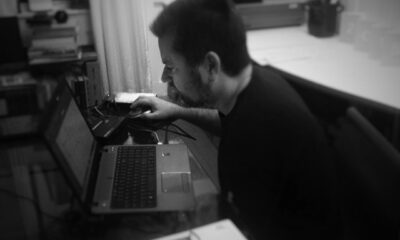


How to Grow a Successful Small Business
-




VidCruiter Acquires Ingage Solutions, an AI Interview Intelligence Technology founded at Stanford University
-




In this Interview, Timi Orosz talks about spirituality, mindfulness, and how spirituality can avert major global conflicts
-




An Interview with Tamas, London based Economist and founder of Alpha FX Acacdemy
-

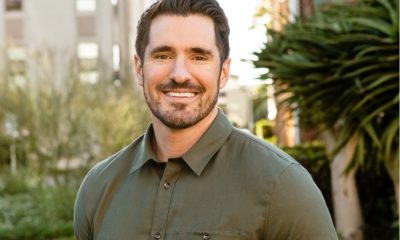


An Interview with Adam Ferrari, Founder & CEO of Ferrari Energy
Interview
An Interview with Jonathan Printers Jr., Founder of ‘A Writers Business’
Published
10 months agoon
June 18, 2023By
Diana Smith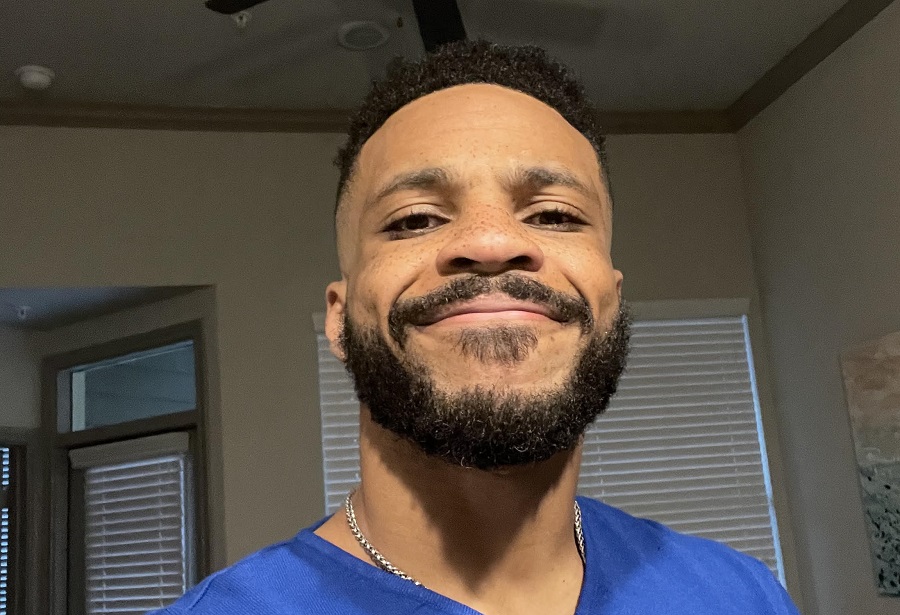

Jonathan Printers Jr. is the founder of ‘A Writers Business‘. He started this platform to help the writers’ community evolve into better writers and gain exposure. And ultimately, helping them achieve their financial goals as well. We recently interviewed Jonathon to more about his venture.
Jonathon, Thank you for doing this. Tell us something about yourself. What did you do before founding ‘A Writers Business’?
Thank you for having me. I’m primarily a mental health therapist and for the most part I spent years balancing that career with one in the national guard. I’d been interested in starting a business and really had no idea where to begin. Technology helped with that. Back in 2017, I first played around with the idea. I found it easy to create a website, get an address link, and add some information and images. From there, I created or collaborated on various online projects/businesses. The inspiration for A Writers Business originally came from an interest in poetry that soon expanded to include writers, authors, and content creators as well. There is an emphasis to help these individuals expand their audience.
What was your motivation behind founding ‘A Writers Business’? What were the initial challenges that you faced in your endeavor?
I did a few clothing lines in 2018 and 2019. I found it difficult to get those going because of the upfront costs of production. I needed something relatable, something I was interested in, and at a minimum upfront investment that could run without thousands of dollars invested. The poet and writer community is extremely large, and growing, and because of social media now many people have the opportunity to showcase their talents. A Writers Business began sharing various poets and writers. Now with a goal to help those in this community grow their brand.
Do you think the space for authors and poets will change forever with the adoption of tools like ChatGPT?
Absolutely. ChatGPT comes with pros and cons, right? I see ChatGPT helping authors and poets develop summaries, outlines, bullet points, or even short stories with ChatGPT. With some editing, authors will be able to use AI to generate many more words in a shorter time span. I haven’t seen prompts for poetry yet, but I’m sure it’s possible. The downside is that it will take the creativity, uniqueness, and style away from the poet. So, If I had a preference, I can see it being useful if I’m on a tight deadline. Other than that, I’d prefer someone’s honest words.
Taking forward the previous question, do you feel that Artificial Intelligence tools can ever replace authors and poets?
No, absolutely not. I see AI as a great tool for compiling information and providing great suggestions. Filler material. However, great authors and poets put their essence and personal perspectives in their writing. That’s something that can only come from the human heart and mind.
How does ‘A Writers Business’ help authors and poets in achieving their goals?
Our goal is to help authors and poets gain exposure, grow their audience, and have some support with promotions. We offer a variety of services including social media promotion, editing, poet and author interviews (free of cost), as well as support through marketing. Each service is tailored specifically to the individual client, their needs, and the feedback we receive.
How did Covid impact your business?
Tremendously. We were up and running in 2019-2020, focusing heavily on poetry contests, interviews, and promotion. With the pandemic, there was worry over finances and unemployment. As a result, I lost some support I had with maintaining the website, social media pages, and marketing authors and poets. Also, most of my time went into maintaining my household and career. Since then, we’ve slowly built back up refocusing our efforts on consistency, article writing, poet and author interviews.
How has ‘A Writers Business’ evolved over the years? In the coming months, how do you wish to transform the landscape of the writers community?
A Writers Business went from an Instagram platform exclusively promoting poetry to a network that includes several social media platforms, a medium publication, a complete website, and a community on Patreon. There are so many talented creatives that are deserving of acknowledgment. In the coming months to a year, I hope to meet with several poets and authors, give a few interviews myself, and shift our focus back to marketing.
What would you like the writing community and your audience to know?
I always invite feedback. I want to meet people and guide them toward their goals. So, if there’s a need in the community, please, let me know. And if you’re looking to boost your portfolio, come write for us!
Interview
An Interview with Joanne Docherty, Mental Health Expert and Founder of Starra Education
Published
1 year agoon
April 14, 2023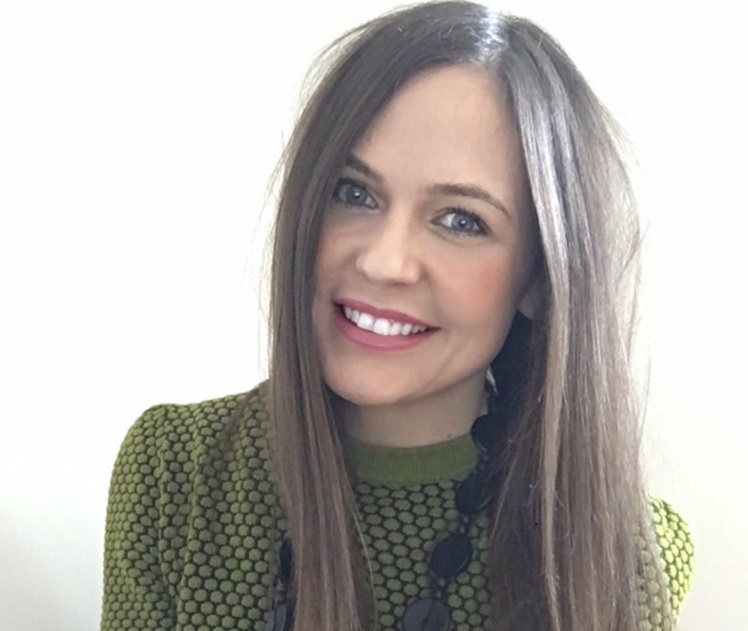

Joanne Docherty is the founder of Starra Education. Through Starra Education, she offers a range of accredited Mental Health Training and Qualifications crafted both for individuals and organisations. Joanne also teaches Psychology at The University of Glasgow. We recently interviewed her to know more about mental health challenges and how her company is addressing those challenges.
Can you tell us a little bit about your background and experience in mental health first aid training?
I have been actively involved in mental health first aid training for several years now, and I am passionate about helping individuals and organisations to better understand and address mental health issues. I have a strong educational foundation and have worked hard to gain valuable experience in this field. As an educator at the University of Glasgow, I have had the opportunity to teach students about mental health. I am also a member of the Scottish Parliament Cross Party Group on Mental Health, which has allowed me to contribute to policy discussions and advocate for better mental health services in Scotland.
In addition, I am the founder of Starra Education, a company that provides evidence-based mental health training programs to organisations. Through my work with Starra Education, I have been able to help many employees learn how to identify signs of mental health issues in their colleagues and take appropriate steps to provide support. I have also worked with organisations to provide mental health support and resources to those in need.
What inspired you to become involved in mental health first aid training and founding Starra Education?
I have always been passionate about mental health and wellbeing, and I have dedicated my career to working with various non-profit organisations and educational institutions to help individuals facing challenges. However, the impact of COVID-19 and seeing how people were being affected mentally was a significant reason I started to offer this qualification at Starra Education. I was supporting a lot of leaders through their leadership qualifications who were facing issues with their staff teams and didn’t know how best to support them, and I could see a massive gap. This motivated me to take action and offer mental health first aid training to help people identify and manage mental health issues in themselves and others.
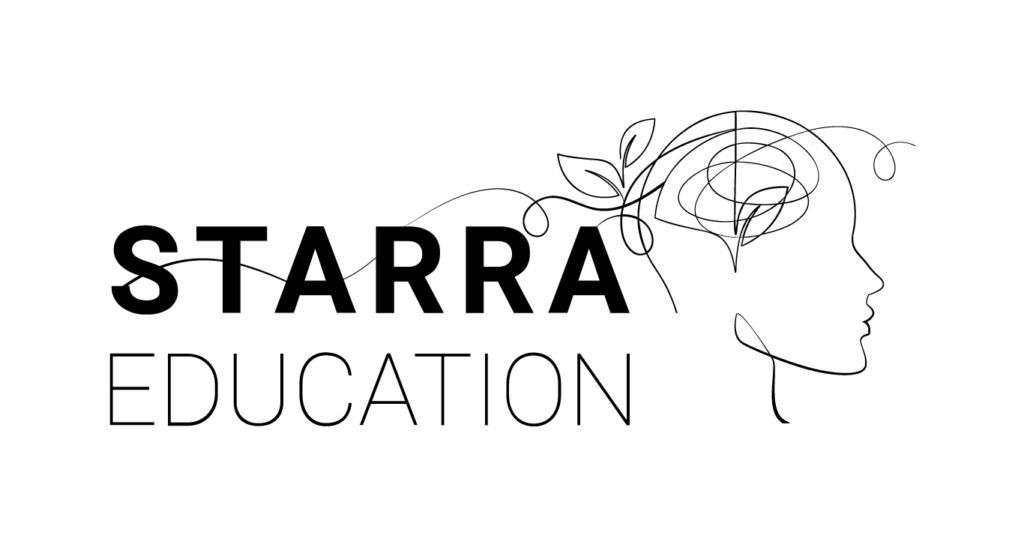

I saw an opportunity to use my expertise to provide evidence-based programs that could teach leaders how to recognize the signs of mental health issues amongst their employees and take the necessary steps to support them effectively. My personal experiences with my mother, who was schizophrenic, have been a significant source of inspiration for my work. Witnessing the impact of mental health issues firsthand, I was driven to make a positive difference in the lives of others through education and support. Overall, the combination of these factors has fueled my passion for mental health first aid training and inspired me to offer this at Starra Education.
How do you think mental health first aid training can help individuals and communities?
Mental health first aid training is a vital resource for individuals and communities. It can help to reduce the stigma and discrimination associated with mental health challenges by increasing understanding and awareness. It can help individuals recognise the signs and symptoms of mental health issues and provide them with the skills and knowledge to support someone in need. It can also help break down the stigma surrounding mental health and create a culture of openness and support. By providing mental health first aid training to community groups, organisations, and workplaces, we can create a safer and more compassionate environment for everyone.
How do you tailor your training to different audiences, such as youth or older adults?
As an experienced educator, I understand that effective teaching is all about tailoring to the needs of the learners. Therefore, when training different audiences such as youth or older adults, I employ different strategies to cater to their learning needs. For instance, when working with younger learners, I use more interactive and engaging teaching methods that allow them to learn while having fun. For adults, I take a more practical approach by providing real-life scenarios that they can relate to and learn from. I also ensure that I understand the audience’s background, level of understanding, and learning style to create an effective learning environment. Additionally, I provide open communication channels to ensure that learners feel comfortable approaching me for extra support if they require it. Overall, I strive to create an inclusive and supportive learning environment that caters to the diverse needs of all learners.
How do you approach issues of stigma and discrimination in mental health first aid training?
A huge part of my approach to mental health first aid training involves addressing stigma and discrimination head-on. I believe that language is a powerful tool, and we need to be mindful of the words we use when discussing mental health. Many people use hurtful language without realising the impact it can have on those who are already struggling. Therefore, I encourage individuals to use appropriate language to reduce stigma and discrimination towards people experiencing mental health problems.
In addition to language, we also need to address the root causes of stigma and discrimination. I emphasise that mental health problems are prevalent, and anyone can be affected at any time, and individuals need to approach it from a place of compassion and empathy.
What are some of the most important skills or knowledge areas individuals should gain from mental health first aid training?
Individuals can gain essential skills and knowledge areas from mental health first aid training, such as: Understanding mental health and mental illness, this includes learning about common mental health conditions.
Recognising warning signs: this training can teach individuals how to identify signs and symptoms of mental health challenges, and how to distinguish between normal behaviour and signs of distress.
Effective communication:this includes learning how to communicate effectively and empathetically with someone who is experiencing a mental health challenge, and how to approach and support them.
Crisis management: it teaches individuals how to respond in a crisis situation. By gaining these skills and knowledge areas, individuals can become better equipped to support someone who may be experiencing a mental health challenge and provide them with the necessary help and resources they need.
You also teach Psychology at Glasgow University. How do you incorporate your subject matter expertise in Psychology in the training program you offer?
As a Psychology tutor at Glasgow University, I am able to incorporate my expertise in mental health and human behaviour into my mental health first aid training. I draw on the latest research in Psychology to provide participants with evidence-based strategies for supporting individuals with mental health issues. I also emphasise the importance of mental health education and provide participants with a deeper understanding of the causes and consequences of mental health problems. By incorporating my subject matter expertise into my training, I hope to provide participants with a comprehensive understanding of mental health and the tools to support those in need.
Finally, what advice would you offer to someone who is interested in becoming a mental health first aider?
Contact me and we can have a chat of course! In all seriousness, If you are interested in becoming a mental health first aider my advice would be to start by seeking out reputable training programs and organisations that offer accredited mental health first aid qualifications. Attend training courses, gain practical experience through volunteering or just being there for friends and family when they need support. It is also important to stay up-to-date on the latest research and developments in the field, and to engage in ongoing professional development. Most importantly, approach the work with empathy, compassion, and a commitment to reducing mental health stigma and promoting mental health and wellbeing.
Interview
An Interview with Fitness Entrepreneur Eugene Pallisco
Published
1 year agoon
December 28, 2022

As a fitness entrepreneur, Eugene Pallisco has dedicated his life to equipping people with the knowledge, willpower, confidence, and appropriate technique they need to reach their fitness objectives.
He has devoted a lot of effort to sculpting and refining his training philosophy, which is centered on the improvement of others, ever since working with motivating fitness mentors in high school. Pallisco began his career teaching group fitness classes, then broadened his knowledge by working one-on-one with gym patrons as a personal trainer before starting his private training company in the fitness sector.
Eugene is dedicated to assisting individuals in discovering the joy and freedom in their physical activity, whether through weightlifting, long-distance or high-intensity cardio, or sports training. He is confident that everyone can change their body into a strong, healthy one with the appropriate attitude, patience, and effort.
Entrepreneurship is an evergreen “buzzword.” Why do you think that is?
In my experience, being an entrepreneur can offer several benefits and perks that keep it an enticing proposition, including:
Control and flexibility: As an entrepreneur, you have the freedom to set your own schedule and work on projects that you are passionate about, allowing for a better work-life balance and the ability to pursue other interests.
Opportunity to make a difference: Starting a business can allow you to create something that positively impacts the world and helps solve a problem or meet a need.
Potential for financial success: If your business is successful, you may have the opportunity to earn a higher income than you would in a traditional job.
Independence: Being your own boss can give you a sense of freedom and autonomy that may not be possible in a traditional job.
Being an entrepreneur can be a gratifying and rewarding experience, but it also demands tremendous hard work and attention. I can’t emphasize this last part enough.
Why did you pursue the fitness industry?
Becoming a personal trainer can be a rewarding career choice for people who are passionate about health and fitness and enjoy helping others achieve their fitness goals. Some potential benefits of becoming a personal trainer include:
Personal fulfillment: Helping others improve their health and fitness can be a fulfilling and meaningful career. The reward of helping others, in particular, was my primary motivator in pursuing a career in the fitness industry.
Good pay: Personal trainers can earn a good salary, particularly if they have a solid client base and can charge competitive rates for their services. That said, you should always prioritize the client’s well-being over monetary gains.
Career growth: Personal trainers can advance their careers by earning additional certifications, specializing in certain areas of fitness, or starting their own training businesses, as I’ve done.
It’s important to note that becoming a personal trainer requires a significant commitment of time and energy. In addition to obtaining the necessary certifications, personal trainers must be able to motivate and support their clients and adapt to their clients’ changing needs and goals.
As a fitness professional, I’m sure you don’t back down from a challenge, but I imagine the COVID-19 pandemic took its toll on your industry. How did you overcome this?
The COVID-19 pandemic has significantly impacted the fitness industry. Many gyms and fitness studios were forced to close their doors or substantially limit their capacity to comply with public health measures designed to slow the spread of the virus.
In response, many fitness facilities and trainers, including myself, pivoted to offering virtual classes and training sessions, allowing them to continue serving their clients and generating revenue while in-person classes were impossible. Some facilities also implemented additional health and safety measures, such as frequent cleaning and sanitization, temperature checks, and mandatory masks, to make it safer for clients to return when restrictions were lifted.
In addition, outdoor and socially distanced fitness options, such as outdoor group classes and personal training sessions, became more popular as people sought ways to stay active while minimizing the risk of exposure to the virus. Thankfully, the year-round weather in Dallas is quite pleasant and enabled me to implement this approach.
To continue servicing customers and offering value throughout the epidemic, other fitness professionals and I had to be innovative and adaptive. As vaccination rates rise and public health regulations relax, the sector is expected to change and adapt to suit evolving requirements and concerns.
What are the advantages of working with a personal trainer?
Depending on the client and their goals, the perks will differ, but in most cases, I’ve found that there are several ubiquitous advantages to working with a personal trainer:
Customized workouts: A personal trainer can design a workout plan specifically for your needs and goals, considering your current fitness level, medical history, and any injuries or limitations you may have.
Motivation: Personal trainers can provide encouragement and support to help you stay motivated and committed to your fitness goals.
Expertise: Personal trainers are trained professionals with a wealth of knowledge about exercise, nutrition, and overall health and wellness. They can provide guidance and recommendations to help you achieve your goals safely and effectively.
Safe and effective workouts: Personal trainers can ensure that you are performing exercises correctly and safely, which can help reduce the risk of injury and help you get the most out of your workouts.
Accountability: Having a personal trainer can help you stay accountable for your fitness goals. You are more likely to stick to your workouts and make healthy choices when you have someone to regularly answer to and check in with.
Variety: Personal trainers can help you mix up your workouts and try new activities to keep things exciting and challenging.
Overall, working with a personal trainer can effectively improve your fitness level, help you achieve your goals, and lead a healthier lifestyle. It may not be for everyone, but it’s certainly worth exploring!
Software and analytics company Buyers Edge Platform Accelerates European Expansion with Two Strategic UK Acquisitions
Venture Capital Fund Manager Token Bay Capital Granted In-Principle Approval To Invest In Tokens With First of Its Kind License in Abu Dhabi Global Market (ADGM)


Walmart chooses Swisslog ASRS powered by SynQ software to enhance transparency and delivery of quality products in third milk processing facility
Saad Kassis Mohamed led WeCare Raises $350000 for Lab-Grown Diamonds
UK-based fintech Nuke From Orbit raises £500k pre-seed funding to deliver smarter smartphone security
Japanese Fintech Leader Smartpay, partners with Chubb Insurance to accelerate digitization of the Japanese Insurance Industry, Anticipated to Surge to 80 Trillion Yen (USD $500 Billion) by 2027
Trending
-



 How to7 years ago
How to7 years agoHow to register a Startup in USA
-
Interview5 years ago
An Interview with Joel Arun Sursas, Head of Clinical Affairs at Biorithm, Singapore
-



 More4 years ago
More4 years ago6 Promising Up and Coming Fashion Companies
-



 More6 years ago
More6 years agoFactors to Consider When Planning Your Office Design and Layout
-



 Interview4 years ago
Interview4 years agoAn Interview with Russell Jack, Southland-based Yogapreneur and Mindfulness Teacher
-



 Other Internet Tech6 years ago
Other Internet Tech6 years agoHow to become an IPTV reseller? A beginner’s guide
-



 More6 years ago
More6 years agoIPTV business for beginners
-



 Business Ideas6 years ago
Business Ideas6 years ago50 Small Business ideas with low investment

